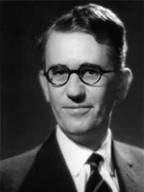
The Cambridge Greek Lexicon is the brainchild of John Chadwick, internationally renowned for his work with Michael Ventris on the decipherment of the Linear B script. Earlier in his career John had worked on the Oxford Latin Dictionary, after which he maintained a lifelong interest in lexicography.
He was the compiler of a Neo-Latin Lexicon of the theological works of Emanuel Swedenborg (published under the editorship of Jonathan Rose in 2008) and he also worked on the Revised Supplement to the Greek–English Lexicon of Liddell and Scott, edited by Peter Glare (1996).
His thoughts on lexicography can be found in his book Lexicographica Graeca (1996), notably in the introductory chapter. He presented and wrote papers on the need for a replacement to Liddell & Scott, whilst planning the more practicable production of a medium-sized lexicon.
 The project was announced in an article in The Times in 1998 and launched that year, supported by the Faculty of Classics. Dr Anne Thompson, a former student of John Chadwick’s, who had previously worked on the Revised Supplement and helped with the founding of the Lexicon, was the first member of the team to be appointed. John had hoped to see the project through to completion, but died unexpectedly in the first year.
The project was announced in an article in The Times in 1998 and launched that year, supported by the Faculty of Classics. Dr Anne Thompson, a former student of John Chadwick’s, who had previously worked on the Revised Supplement and helped with the founding of the Lexicon, was the first member of the team to be appointed. John had hoped to see the project through to completion, but died unexpectedly in the first year. 
Following this, Professor James Diggle, who had been Chair of an advisory committee with the task of reading and commenting on all pages of the Lexicon, took charge of the project, becoming the editor and principal writer.
Fund-raising and administration were led by Professor Pat Easterling, the first Chair of the Management Committee, who was succeeded in 2009 by Professor Richard Hunter, the current Regius Professor of Greek, who was followed in turn by Professor James Clackson. The current Chair of the Project is Professor Stephen Oakley.
 In 1999, Anne Thompson held discussions with Professor Gregory Crane of the Perseus Project, which led to the creation of an electronic databank of lexicographic slips, designed by Professor Jeffrey Rydberg-Cox of the University of Missouri at Kansas City, which has become central to work on the Lexicon. At about the same time Dr Bruce Fraser joined the project as Assistant Editor, and was, among other roles, the principal team member in charge of IT.
In 1999, Anne Thompson held discussions with Professor Gregory Crane of the Perseus Project, which led to the creation of an electronic databank of lexicographic slips, designed by Professor Jeffrey Rydberg-Cox of the University of Missouri at Kansas City, which has become central to work on the Lexicon. At about the same time Dr Bruce Fraser joined the project as Assistant Editor, and was, among other roles, the principal team member in charge of IT.
In 2004, Dr Oliver Simkin, another Cambridge-trained linguist, joined us as Assistant Editor, followed in 2007 by Dr Patrick James.
Dr Simkin moved in 2010 to take up a research post in Denmark, but rejoined the project in September 2014.
 In the same year, we were joined by two more Cambridge graduates, Mr Simon Westripp, who originally worked with the project as an undergraduate summer intern, and Dr Robert Crellin, who worked part-time as Assistant Editor.
In the same year, we were joined by two more Cambridge graduates, Mr Simon Westripp, who originally worked with the project as an undergraduate summer intern, and Dr Robert Crellin, who worked part-time as Assistant Editor. 
 In 2002 Ms Pauline Hire, formerly Classics Editor at Cambridge University Press, was appointed as project co-ordinator, giving general assistance where needed.
In 2002 Ms Pauline Hire, formerly Classics Editor at Cambridge University Press, was appointed as project co-ordinator, giving general assistance where needed.
Publication by CUP is envisaged in late 2020.
Next Page: Methodology and Future Use
